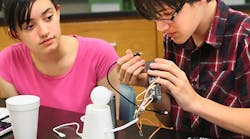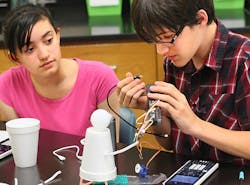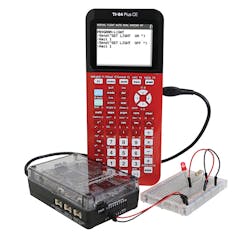Have Chip Vendors Taken Over Where Heathkit Left Off?
Long ago, Heathkit provided hordes of hackers and budding engineers with educational platforms that often turned out to be useful devices like amplifiers, radio receivers and oscilloscopes. It also had kits that were more STEM-oriented, although the term was “educational” at the time. Heathkit is no more (actually that is incorrect, heathkit.com exists although the collection of hardware is a far cry from its heyday and a bit eclectic), having wandering into the PC and robotics market for a time.
There have been many companies that have taken the place of Heathkit, ranging from Parallax (see “Multicore Propeller ‘Flys’ Quadcopter” on electronicdesign.com) to SparkFun (see “The Rise And Fall Of Heathkit—And Rise of SparkFun” on electronicdesign.com). The rise of the low-cost microcontroller has turned expensive development kits into inexpensive platforms like the BBC’s micro:bits that are going to millions of students to build the next big thing in the Internet of Things (IoT).
That brings us to Texas Instruments’ (TI) latest offering, the TI-Innovator Hub (Fig. 1). It targets the classroom and STEM education with its new MSP-EXP432P401-ET TI LaunchPad Board. The module exposes three input and three output ports along with a pair of micro-USB ports for power and programming. There is also an I2Cport and a 20-pin header for the optional Breadboard Pack.
Maker platforms like Raspberry Pi and Arduino have built a massive base of users, but it is a small fraction of the number of students that could make use of these STEM-oriented platforms. The level of success will depend upon the community that can be developed and the amount of support that is provided from the vendors.




